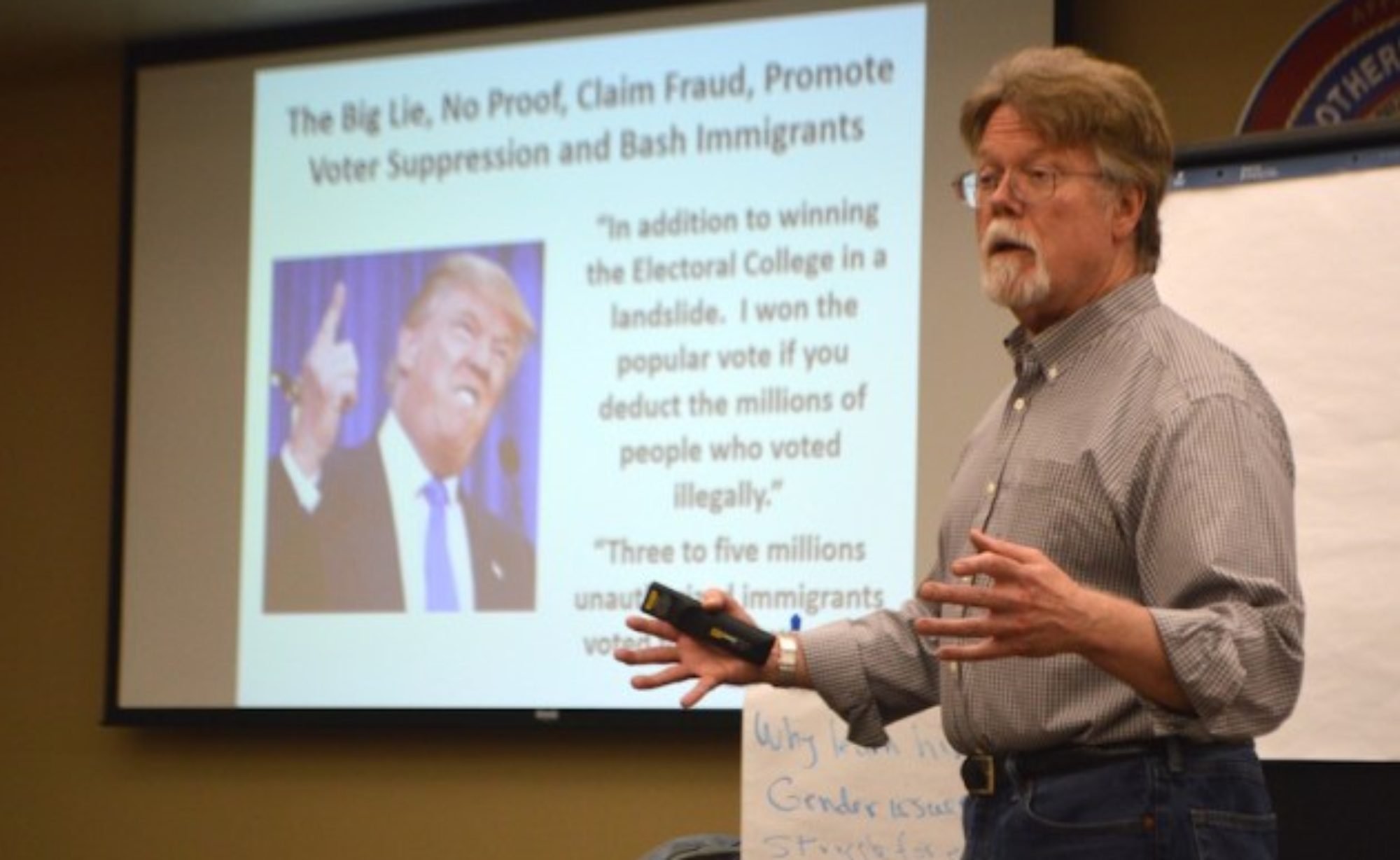If I had $10 for every time I hear a young person say that Social Security won’t be around for them, I could pay for a round-the-world trip. These feelings are anchored in fear, hopelessness, powerlessness and ignorance of history. We are constantly bombarded with pessimistic messages that our country can’t afford to ensure that everyone has a secure retirement. This is nonsense.
Winning a secure retirement for all has been one of the key struggles of working people since the 1800s. We need to tell our story of hope, courage and victories against entrenched corporate power. In doing so we will inspire people, young, middle-aged and old, for the fights ahead.
To paraphrase Fred Kaltenstein, a labor educator: “If the young don’t understand and appreciate the struggles of their parents, grandparents and great-grandparents, they may be doomed to fight the same battles over again.” Let me share a family story that brings hope.
My Irish-American grandfather worked from the age of 10 to 75. A frugal hardworking laborer, he was too old to get Social Security. When he “retired” in 1945, my grandparents received a monthly old-age pension check from the state of Illinois. This program preceded Social Security and was intended to help old people with no income. Each month, the state placed a lien against their house. When they died within a month of each other in 1954, the state foreclosed on the house as the liens were worth more than the house. Sixty-five years of work left nothing for their heirs.
My German-American grandfather was an unemployed autoworker who was seriously injured after being hit by a street car. With no money and no health insurance, he received inadequate health care. In 1932, he died in physical agony and his family in crisis. No Social Security, no pension and the family suffered greatly.
These stories are typical of what “retirement” meant for millions of Americans prior to the rising of we the people in the 1930s. There was little justice in these stories. In general, people of color and elderly single women faced much worse plights that those of my family.
The people’s uprisings of the 1930s began to create a new more secure future for millions. A powerful labor movement and many allies built mass movements which successfully won many reforms including Social Security. For the first time, millions of Americans would eventually earn a monthly retirement check. Racist and sexist lawmakers excluded many people of color and women from the program.
Over the next four decades, continued mass pressure won other major legislative victories: Medicare, Medicaid, cost of living adjustments for Social Security, and an end to many exclusions from Social Security. In addition, a strong labor movement won defined benefit pensions for millions, and many non-union employers followed suit to help keep the unions out. Last but not least, the vast majority of Americans were benefiting from a rising standard of living. Again, people of color and women lagged behind whites and men. Nonetheless retirement was the brightest in our national history. That bright future was built on relentless economic and political organizing. Nothing was given to us.
What did these victories mean for my poor working class parents? Social Security with a COLA and Medicare. They lived into their 90s and used their red-white-and blue Medicare card at University Hospital many times for in- and out-patient care. They did not suffer the fate of my injured grandfather. This is but one of millions of examples of what our great people’s victories meant in the lives of working people.
Everyone has their own family stories of how these struggles made their retirements more secure. We need to share them with our families and friends. In doing so, we create the needed hope that we can once again rise up and create a brighter more secure future for everyone.
Today we are told that our nation, which is much wealthier than in the days of my grand-parents and parents, cannot afford to ensure that everyone can have a secure and dignified retirement. This is a lie of Corporate America and their allies. They don’t want us to have a secure retirement. They certainly don’t want to pay for it. They want us to bear all of the financial risks of retirement.
We the people have a choice. We can accept the corporate-dominated future of growing retirement insecurity or we can rise up once again as our ancestors did. A key part of this new rising must be reclaiming our own history that inspires us, and gives us courage and hope.
